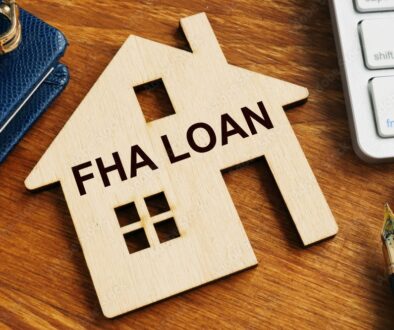Exploring the Benefits of an FHA Loan
Exploring the Benefits of an FHA Loan
If you’re in the market for a new home, chances are you’ve come across various types of mortgages. Among the most popular for first-time homebuyers and those with limited funds is the Federal Housing Administration (FHA) loan. But what exactly makes an FHA loan stand out? Let’s dive into the key benefits of this mortgage option and why it might be the perfect fit for you.
Understanding the FHA Loan
Before we explore the benefits, it’s important to understand what an FHA loan is. FHA loans are mortgages insured by the Federal Housing Administration, a government agency. This insurance protects lenders against losses in case the borrower defaults, which in turn allows lenders to offer more favorable terms to borrowers.
Key Benefits of an FHA Loan
Lower Down Payment Requirements
One of the most significant advantages of an FHA loan is the low down payment requirement. Traditional loans often require a down payment of 10-20%, which can be a substantial barrier for many homebuyers. With an FHA loan, you can put down as little as 3.5%, making homeownership more accessible.
Flexible Credit Requirements
FHA loans are designed to help borrowers with less-than-perfect credit. While conventional loans typically require a higher credit score, FHA loans can be obtained with a credit score as low as 580. Some lenders might even approve applicants with scores between 500-579, though a larger down payment (usually 10%) will be required in these cases.
Competitive Interest Rates
Thanks to the government backing, FHA loans often come with competitive interest rates. This can translate to significant savings over the life of the loan. Even if your credit score isn’t stellar, you can still qualify for an attractive rate, which isn’t always the case with conventional loans.
Higher Debt-to-Income Ratio Allowance
The debt-to-income (DTI) ratio is a crucial factor in determining mortgage eligibility. FHA loans allow for a higher DTI ratio compared to conventional loans, which means you can qualify for a mortgage even if you have existing debts like student loans or credit card balances.
Assistance with Closing Costs
Closing costs can add up quickly, sometimes making it difficult for buyers to cover these expenses out of pocket. With an FHA loan, sellers, builders, or lenders can contribute to closing costs, easing the financial burden. Additionally, the FHA allows for the use of gift funds to cover both the down payment and closing costs.
Streamlined Refinancing Options
If you already have an FHA loan, you may be eligible for the FHA Streamline Refinance program. This option allows you to refinance your existing FHA loan with reduced paperwork, lower fees, and sometimes no appraisal, making it a hassle-free way to take advantage of lower interest rates or better terms.
Programs for Home Improvements
The FHA 203(k) loan program is another benefit that stands out. It allows borrowers to finance the purchase of a home and the cost of its rehabilitation through a single mortgage. This is particularly beneficial for buyers interested in purchasing fixer-uppers and making improvements.
Conclusion
An FHA loan offers numerous advantages that can make the dream of homeownership a reality for many individuals. From lower down payments and flexible credit requirements to competitive interest rates and assistance with closing costs, these benefits make FHA loans a compelling option. If you’re considering buying a home, exploring the FHA loan could be the key to opening the door to your new abode.
Whether you’re a first-time homebuyer or looking to refinance your existing mortgage, an FHA loan is worth considering. With its array of benefits, it’s no wonder that millions of Americans have chosen this path to homeownership.




